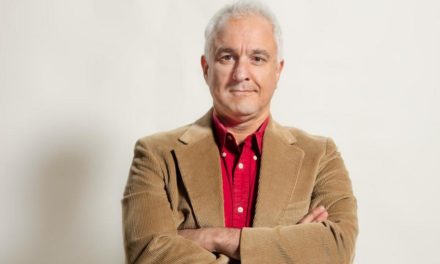Diseases can only be cured to a certain degree of severity risk-free in private healthcare, Andrea Ficzere, president of the Hungarian Hospital Association, told mandiner.hu, according to whom we cannot afford the luxury of healthcare workers leaving the system. As he says, the hospitals remained afloat during the epidemic, but the financing must definitely be changed.
In the interview, he also said: our most important goal is that, if necessary, all Hungarian citizens have an equal chance of being admitted to a medical institution where the appropriate care is provided for them. It is important that no one wanders unnecessarily in the system, i.e. that they receive care in the optimal place at the optimal time, where all the necessary conditions – personnel, equipment, financing – are present.
In the past two years, the care of covid patients has been the focus of the healthcare sector, and unfortunately, because of this, many patients with other problems were forced to wait. At the same time, we treated cancer patients and patients in serious condition who needed acute treatment during this period as well. The various waiting list programs give hope and opportunity to the waiting patients, which, in addition to the previous options - for example, hip and knee joint prosthesis, cataract surgery - also enable a large number of interventions that have been hindered by the pandemic in the past period. Parallel to the decrease in the number of covid patients treated in hospitals, the number of patients treated within the framework of the waiting list program increases.
In the special waiting list program, not only the forms of care that are subject to a waiting list are financed, but also the interventions on the so-called capacity-deficient waiting list receive special attention. Within the scope of the latter, you receive a number of other diagnostic, outpatient and inpatient services (for example, gynecological, surgical, urological interventions)
an additional 30 percent funded subsidy, the aim of which is to quickly reduce the number of people waiting and the waiting time. For the staff participating in the program, we can pay 80 percent of the extra amount for the work done, which means a lot to our colleagues.
Regarding private patient care, he said the following: the state system is still responsible for the care of more serious, complex problems that require a complex approach and possibly an intensive care unit background, since all the necessary allied professions, special equipment and funding are present there. Responsible care of a cancer patient, for example, cannot take place in a private provider, as the treatment process is lengthy and unfeasible without special knowledge, equipment, and significant funding. Patient safety is also an important issue, and this can be guaranteed to the greatest extent in state institutions. We know the needs of patients, who are visiting the private sphere in increasing numbers, but it is important that they do not go back and forth between the two systems.
The relationship between the private and state systems must be regulated along sharp boundaries. The most important thing is that all patients receive care on time, and that the interests of the patients, not the providers, determine the healing process.
The current raising of funds and starting reorganization can clearly be considered a success. The epidemic has forced healthcare to receive the attention it deserves. It is very important that this process does not stop. It is necessary to continue raising salaries, making new technologies routine, developing hospital culture, educating and attracting the younger generation into the system. Young people have a much stronger demand for respect, they want a more colorful, varied, less constrained life. They bring new air and new ideas to the institutions, but in order for them to stay, we also have to change. On our expectations, our attitude, the attention paid to them.
Source, full interview and featured image: mandiner.hu/ Noémi Konopás













